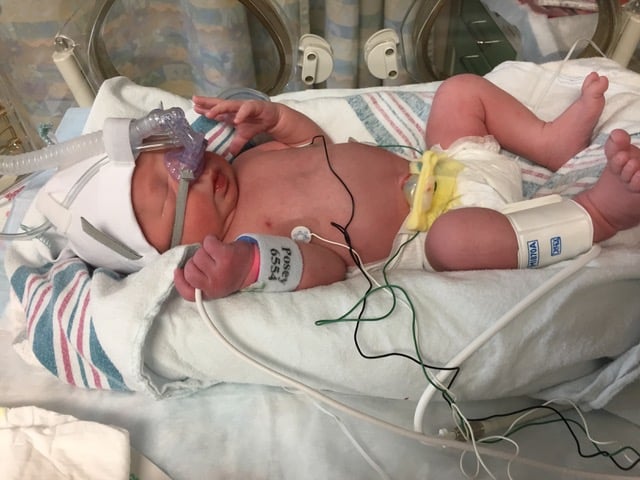
📌 Course Overview
🎓 Certification: Official American Academy of Pediatrics NRP certification card
📅 Class Availability: Offered 16 times per month
📍 Locations: San Francisco, Walnut Creek, and Milpitas
📜 Same-Day Certification: Receive your NRP card on the day of class
In Carmichael, California, the birth of a child is a joyous occasion, but it’s also a time when the need for specialized care and preparedness becomes paramount. Newborn Resuscitation Program (NRP) classes, facilitated by the American Academy of Pediatrics (AAP) and American Heart Association (AHA), equip healthcare professionals with the essential skills and knowledge to respond effectively to newborn emergencies. In this comprehensive article, we explore the significance of NRP classes in Carmichael, their accessibility, comprehensive training, and profound impact on newborn safety within the community.
NRP certification is crucial for healthcare professionals involved in the care of newborns, including obstetricians, pediatricians, neonatologists, nurses, midwives, and respiratory therapists. NRP classes provide participants with specialized training in the assessment and management of newborns requiring resuscitation, including newborns born prematurely, with respiratory distress, or experiencing other birth complications.
NRP classes in Carmichael are designed to accommodate the diverse needs and schedules of healthcare professionals working in perinatal and neonatal care settings. These classes are typically offered at various times and locations throughout the city, ensuring accessibility for participants from hospitals, birthing centers, neonatal intensive care units (NICUs), and other healthcare facilities.
In addition to traditional classroom-based NRP courses, online NRP certification options provide flexibility for healthcare providers to complete the didactic portion of the training at their own pace. This blended learning approach combines online modules with hands-on skills practice and simulation-based scenarios, allowing participants to enhance their knowledge and skills in newborn resuscitation effectively.
NRP classes in Carmichael adhere to a comprehensive curriculum developed by the American Academy of Pediatrics (AAP) and American Heart Association (AHA), incorporating evidence-based guidelines and best practices in newborn resuscitation. Participants learn the principles of neonatal resuscitation, including initial steps, positive pressure ventilation, chest compressions, medication administration, and special considerations for newborns with unique medical needs.
Instructors, often experienced neonatal healthcare providers with specialized training in NRP, facilitate engaging and interactive training sessions. Participants have the opportunity to practice NRP skills in simulated clinical scenarios, including newborn resuscitation simulations, meconium aspiration scenarios, and newborn stabilization exercises. This hands-on approach ensures that participants develop the confidence and competence to respond effectively to newborn emergencies in real-life situations.
One of the key components of NRP training is the initial steps in neonatal resuscitation, which include assessing the newborn’s condition, establishing effective ventilation, and initiating chest compressions if indicated. Participants learn how to recognize signs of respiratory distress and cardiac arrest in newborns and respond promptly to stabilize the newborn’s condition and optimize outcomes.
Positive pressure ventilation (PPV) is a critical intervention in newborn resuscitation, particularly for newborns with inadequate respiratory effort or apnea. NRP classes teach participants how to perform effective PPV using bag-mask ventilation and specialized neonatal ventilators, ensuring adequate oxygenation and ventilation in newborns requiring resuscitation.
Chest compressions are indicated in newborns with bradycardia or cardiac arrest who do not respond to initial interventions. NRP classes cover the principles of newborn chest compressions, including technique, rate, depth, and coordination with ventilation. Participants learn how to perform high-quality chest compressions while ensuring adequate oxygenation and ventilation in newborns.
Medications may be indicated in certain newborn resuscitation scenarios, such as newborns with persistent bradycardia or asystole despite adequate ventilation and chest compressions. NRP classes provide training on the indications, dosages, administration routes, and potential adverse effects of medications commonly used in newborn resuscitation, including epinephrine, naloxone, and volume expanders.
Effective teamwork and communication are essential for successful neonatal resuscitation efforts. NRP classes emphasize the importance of clear communication, leadership, and role assignment within the resuscitation team. Participants learn how to coordinate team-based resuscitation efforts, delegate tasks effectively, and adapt to changing clinical scenarios in high-stress environments.
Upon successful completion of NRP classes, participants receive NRP certification, typically valid for two years. Certification demonstrates that healthcare providers have completed the required training and are competent to provide neonatal resuscitation in emergency situations.
To maintain NRP certification, healthcare providers are required to undergo periodic recertification, typically every two years. NRP recertification courses provide an opportunity for participants to review and refresh their NRP knowledge and skills, learn about any updates or changes in guidelines, and demonstrate proficiency in neonatal resuscitation.
In Carmichael, American Academy of Pediatrics (AAP) and American Heart Association (AHA) NRP classes play a crucial role in enhancing newborn safety and improving patient outcomes in neonatal emergencies. By equipping healthcare professionals with specialized skills and knowledge in neonatal resuscitation, NRP classes empower individuals to deliver timely and effective care to newborns experiencing life-threatening emergencies.
With accessible and comprehensive NRP training options available in Carmichael, healthcare providers have the opportunity to enhance their knowledge and skills in managing neonatal emergencies with precision and confidence. By investing in NRP education and certification, the healthcare community in Carmichael demonstrates its commitment to providing high-quality neonatal resuscitation care and ensuring the health and well-being of newborns in the community.
Who should attend NRP certification classes in Carmichael?
NRP certification classes are primarily designed for healthcare professionals involved in the care of newborn infants, including neonatologists, pediatricians, obstetricians, nurses, midwives, and respiratory therapists.
How long does an NRP certification course typically last?
NRP certification courses usually span over one to two days, depending on the training provider. The course includes a combination of didactic instruction, skills practice, and simulated scenarios to ensure comprehensive learning and skill mastery.
Is there a renewal requirement for NRP certification?
Yes, NRP certification is typically valid for two years, after which healthcare professionals are required to undergo NRP renewal courses to maintain their certification. Renewal courses often include updates on guidelines and hands-on skills practice.
Safety Training Seminars CPR
6020 Rutland Drive, Suite 23, Carmichael, CA 95608
(916) 610-1309